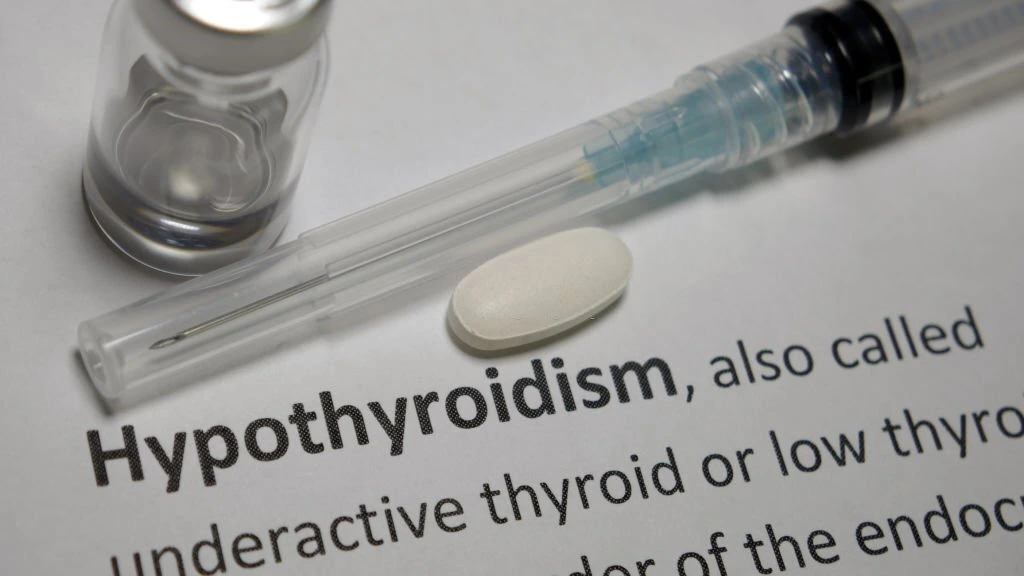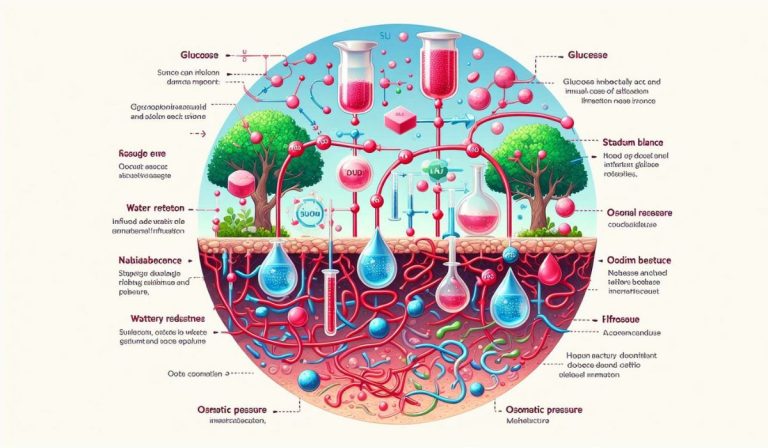Thyroid And Weight Gain: How Do They Relate?

You cannot always blame food for making you gain weight. There can be other reasons that can lead you to gain some extra pounds off the chart. One such factor that leads to weight gain is an underactive thyroid gland. Being an endocrine gland, it is responsible for the production of thyroid hormones in your body. These hormones are necessary for the metabolic activity in your body that can play a major role in deciding whether you will gain weight or not.
If you or someone you know is undergoing a similar condition where weight gain is caused by unknown conditions, it can be an issue with your thyroid. Read on to know more about how a small gland known as the thyroid can affect your weight gain process!
Thyroid Hormones
Thyroid hormones are hormones produced by your thyroid gland which is located on the front of your neck below the larynx. One of the major functions of thyroid hormones is to regulate your metabolism. Thyroid hormones are the collective name given to two main hormones produced by your thyroid gland namely, Thyroxine (T4) and Triiodothyronine (T3).

Along with this, the thyroid gland also produces another hormone known as calcitonin, which has a vital role in controlling calcium levels in your body. Thyroid hormones are also responsible for controlling the speed of your heart rate and maintaining your body temperature. In infants, it plays a crucial role in brain development.
Thyroid And Weight: What Is The Relationship?
A study published in Molecular Biology of Nuclear Receptors in 2018 analyzed the importance of thyroid hormones in the hypothalamic control of metabolism. Based on this study, it was found that thyroid hormones can affect the working of the hypothalamus, which is a small area in your brain that controls your weight and energy equilibrium.
Thyroid hormones can navigate the speed of your metabolism. Metabolism is the process in which your body converts fat into energy molecules. Even if your body is resting, the metabolism can happen, the rate of which is known as basal metabolic rate( BMR). If your body has low levels of thyroid hormones, your BMR decreases which in turn will negatively affect your metabolism. If the metabolic rate is lower in your body, that means the fat is not converted to energy which leads to weight gain.
Alternatively, if your body has high levels of thyroid hormones, it means your BMR can also be high. This means you will have an increased metabolism leading to fat conversion in an accelerated way which can lead to weight loss.
Hypothyroidism and Weight gain
Hypothyroidism or underactive thyroid is a health problem in which the thyroid gland doesn’t produce enough thyroid hormones. A study published in Advances in Therapy found that around 5% of the general population is affected by hypothyroidism. The major symptoms that indicate that you have an underactive thyroid are fatigue, sensitivity to cold, dry skin, weight gain, muscle weakness, etc. Many factors can lead to a case of hypothyroidism.

Some of them are Irregular iodine levels, Hashimoto’s disease, inflammation of the thyroid, radiation or surgical impact on the thyroid, congenital hypothyroidism, etc.
Researchers have found that around half of the people who get affected by hypothyroidism are diagnosed with weight gain. As thyroid hormones control your appetite, metabolism, and thermoregulation, an insufficient level of this hormone can tamper with all these processes. So when you are affected by hypothyroidism, your body lacks enough thyroid hormones. This can hinder the progress of your metabolism and thereby conversion of food into energy will not be done properly. As a result, you will gain weight.
How to manage weight if you have hypothyroidism?
If you have been diagnosed with hypothyroidism, worry not. There are many ways you can manage your weight gain. Some of them are listed below:
- Practice a healthy diet: Incorporating a healthy diet can be a key factor in following a balanced weight due to hypothyroidism. Add more vegetables and fruits into your diet as these contain many antioxidants and anti-inflammatory agents. Try to incorporate foods that are abundant in calcium such as milk, cheese, yogurt, etc. Along with this, limit the intake of added sugars and energy drinks.
- Eat more small and frequent meals: When you have hypothyroidism your digestive system gets slowed. By eating smaller meals throughout the day you can ease up your metabolism and can reduce unnecessary cravings.
- Get into the habit of exercising: Practicing a set of exercises daily can help you with reducing weight gain due to hypothyroidism. Try to engage in at least 30 minutes daily for any kind of physical activity. It can be walking, cycling, jogging, etc. When you work out you get more energy which can relieve the symptoms of fatigue caused by hypothyroidism.
- Practice keeping a food diary: Record your daily food intake in a journal. This can help to calculate how many macronutrients you are having and whether you are following a balanced diet or not.
- Properly consume your Thyroid medication: You should take the Thyroid medication first thing in the morning along with water. This medication can help you with the weight gain caused by an underactive Thyroid.
- Keep your stress under control: Stress can increase the cortisol levels in your body which can escalate the chances of weight gain. Engaging in activities that can relieve stress can help you to control the weight gain caused by hypothyroidism.
Get more information: Losing Weight With Hypothyroidism – Things To Know!
Final Thoughts
Based on the points mentioned above, one can understand that the thyroid can play a crucial role in weight gain. The thyroid gland is a small, butterfly-shaped gland that is located in front of the neck. As an endocrine gland, it produces thyroid hormones that play a major role in metabolism. Studies have shown that the higher the thyroid hormones, the rate at which metabolism works will also be higher.
So when one is affected with a condition known as underactive thyroid where the thyroid hormones are not produced sufficiently, it can lead to a declined rate of metabolism. When the metabolism rate is at lower levels, it can reduce the burning of fat into energy and thereby can cause weight gain. So as a concluding point, one can say that the thyroid plays a crucial role in weight gain.





